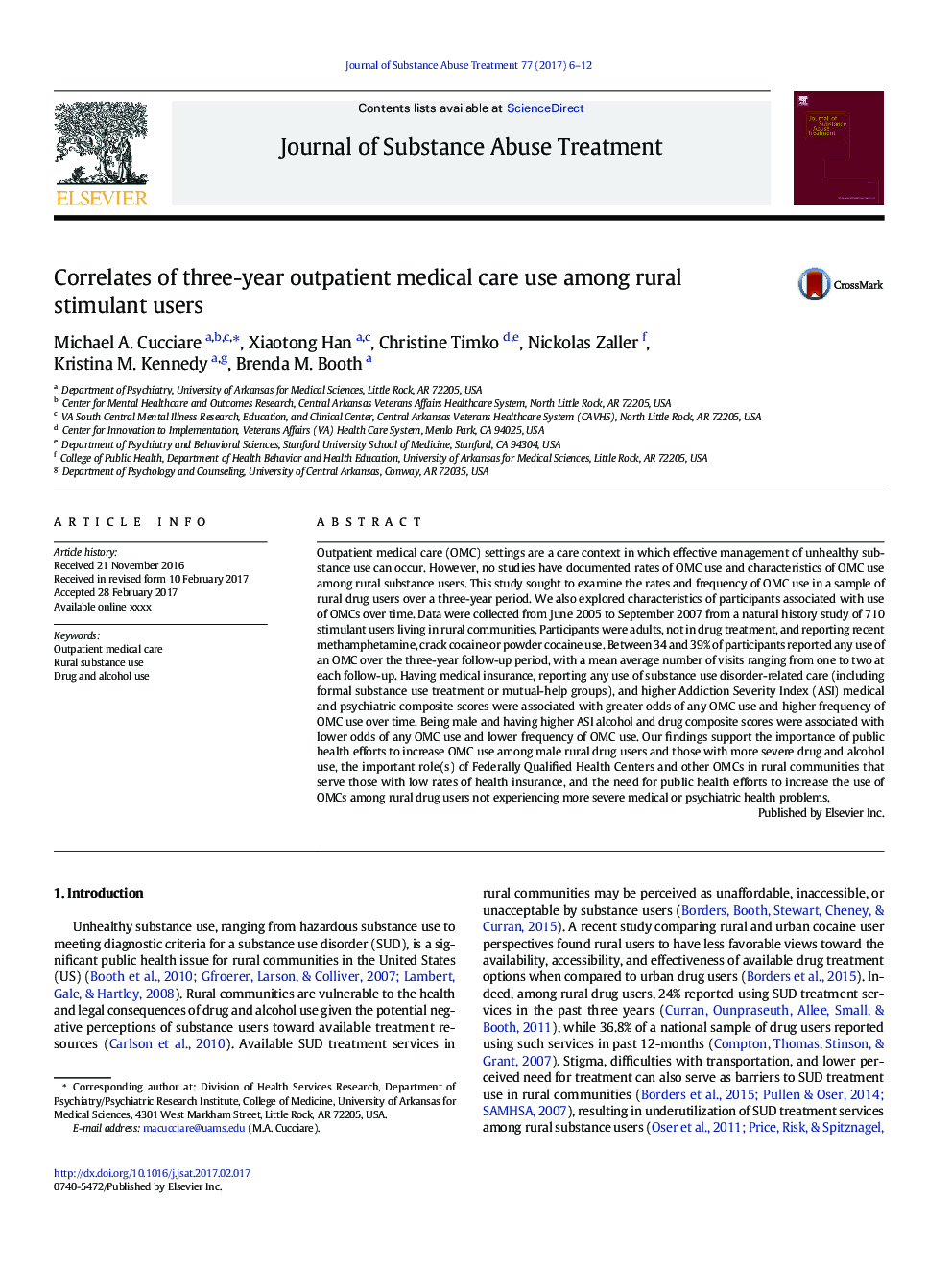| Article ID | Journal | Published Year | Pages | File Type |
|---|---|---|---|---|
| 4932369 | Journal of Substance Abuse Treatment | 2017 | 7 Pages |
Abstract
Outpatient medical care (OMC) settings are a care context in which effective management of unhealthy substance use can occur. However, no studies have documented rates of OMC use and characteristics of OMC use among rural substance users. This study sought to examine the rates and frequency of OMC use in a sample of rural drug users over a three-year period. We also explored characteristics of participants associated with use of OMCs over time. Data were collected from June 2005 to September 2007 from a natural history study of 710 stimulant users living in rural communities. Participants were adults, not in drug treatment, and reporting recent methamphetamine, crack cocaine or powder cocaine use. Between 34 and 39% of participants reported any use of an OMC over the three-year follow-up period, with a mean average number of visits ranging from one to two at each follow-up. Having medical insurance, reporting any use of substance use disorder-related care (including formal substance use treatment or mutual-help groups), and higher Addiction Severity Index (ASI) medical and psychiatric composite scores were associated with greater odds of any OMC use and higher frequency of OMC use over time. Being male and having higher ASI alcohol and drug composite scores were associated with lower odds of any OMC use and lower frequency of OMC use. Our findings support the importance of public health efforts to increase OMC use among male rural drug users and those with more severe drug and alcohol use, the important role(s) of Federally Qualified Health Centers and other OMCs in rural communities that serve those with low rates of health insurance, and the need for public health efforts to increase the use of OMCs among rural drug users not experiencing more severe medical or psychiatric health problems.
Keywords
Related Topics
Life Sciences
Neuroscience
Biological Psychiatry
Authors
Michael A. Cucciare, Xiaotong Han, Christine Timko, Nickolas Zaller, Kristina M. Kennedy, Brenda M. Booth,
